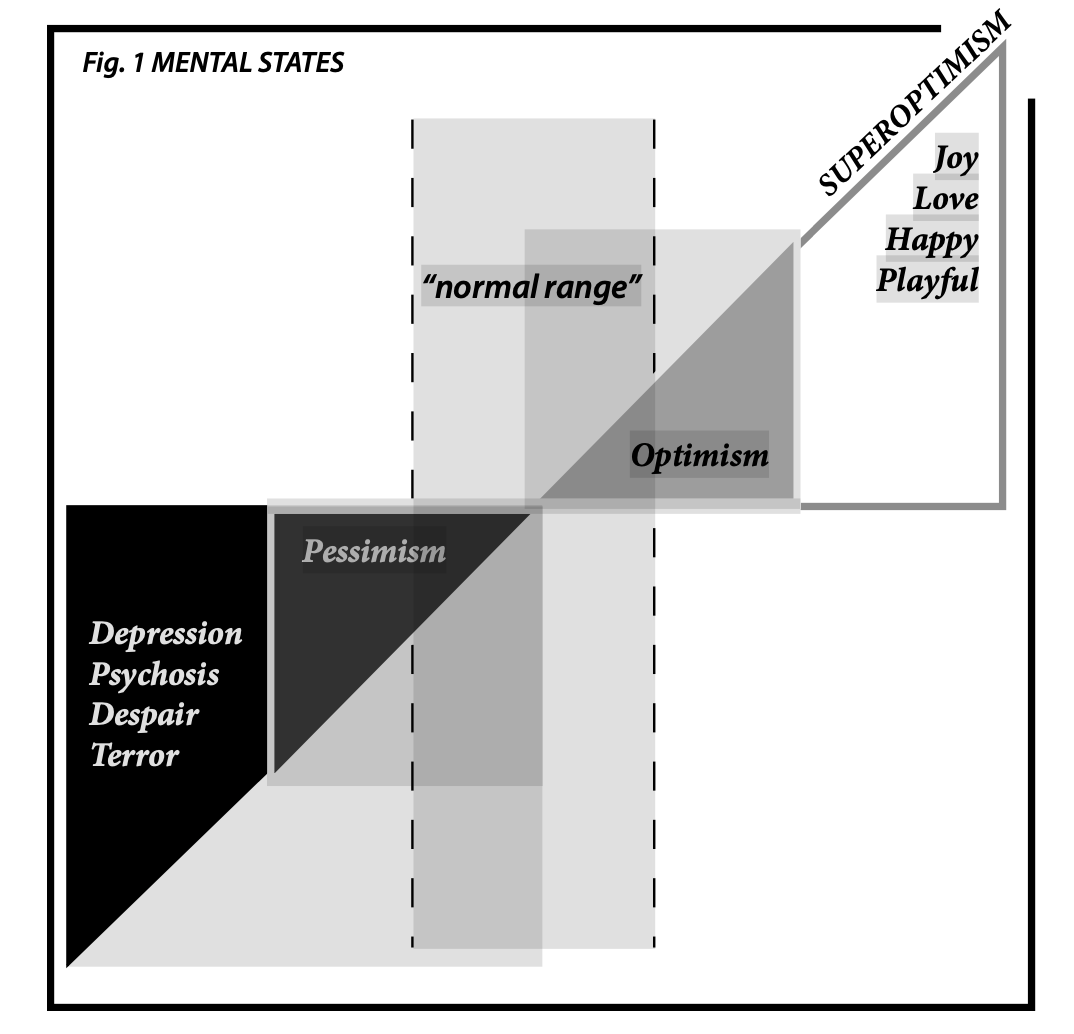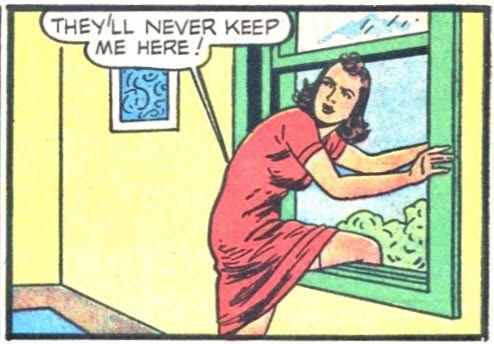Optimist Day is the first Thursday in February, so you might think we’d be making plans to toss confetti and dance the samba. But we’re not optimists. We’re SuperOptimists. As such, we celebrate our contrarian view of optimism at off-peak times, when there are no lines at our favorite restaurant and there are plenty of seats available on the M5 bus.
The Tuesday before Optimist Day is a good time to reflect on the difference between plain old ordinary optimism and our supercharged, quantum state belief system. Herewith, we offer the following explanation, culled from the transmitters’ original manuscript, to clarify what is meant — in broad terms — by SuperOptimism.
In the Figure 1 diagram , you will see the mental states that are commonly experienced by human beings. They range from a state of despair to a state of joy. The “gates” to these opposites, joy and despair, are optimism and pessimism.

Hence, the three working definitions which help us to better understand the significance of placing the word “Super” before the word “Optimist.”
Optimist: One who usually expects a favorable outcome.
Pessimist: One who usually expects a negative outcome.
SuperOptimist: One who has learned the mental discipline to reframe any situation into a favorable outcome.
Therefore, we may extrapolate the following: If the situation is good, the SuperOptimist reframes it as “even better.” If the situation seems bad, negative, gloomy, sad, doomed, or awful, then the SuperOptimist reframes that so-called “bad” situation into one that is just as “good” as a good situation. Or better.
Sometimes it will seem very difficult to reframe an event (parking ticket, bad haircut, influenza, divorce) in a SuperOptimistic way, but fortunately for us, humans are very good at building habits into habitual behavior. Simply stated, if you can make a habit of being a SuperOptimist for 5 minutes today, you can be one for 10 minutes tomorrow, and 20 the next day.
Here’s to celebrating SuperOptimist Day each day you’re above ground. (Which includes today assuming you’re reading this.) Best wishes.


